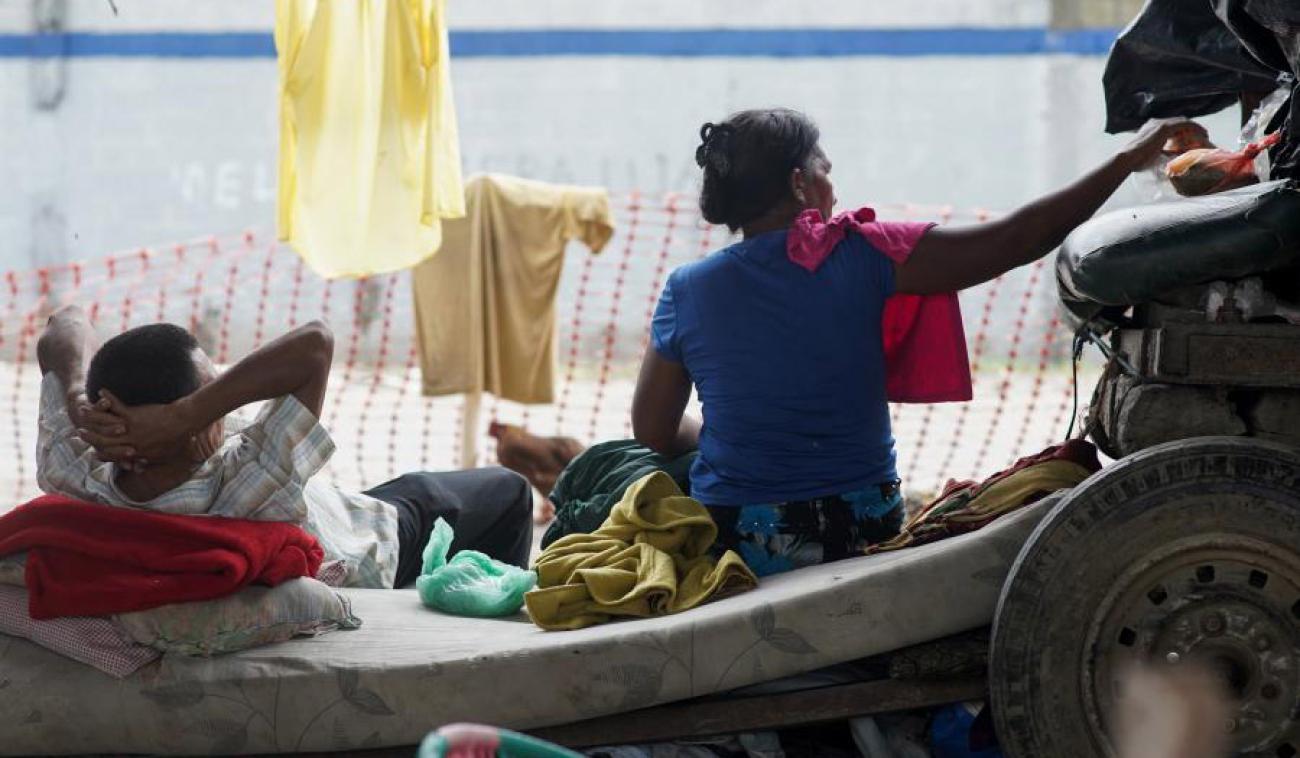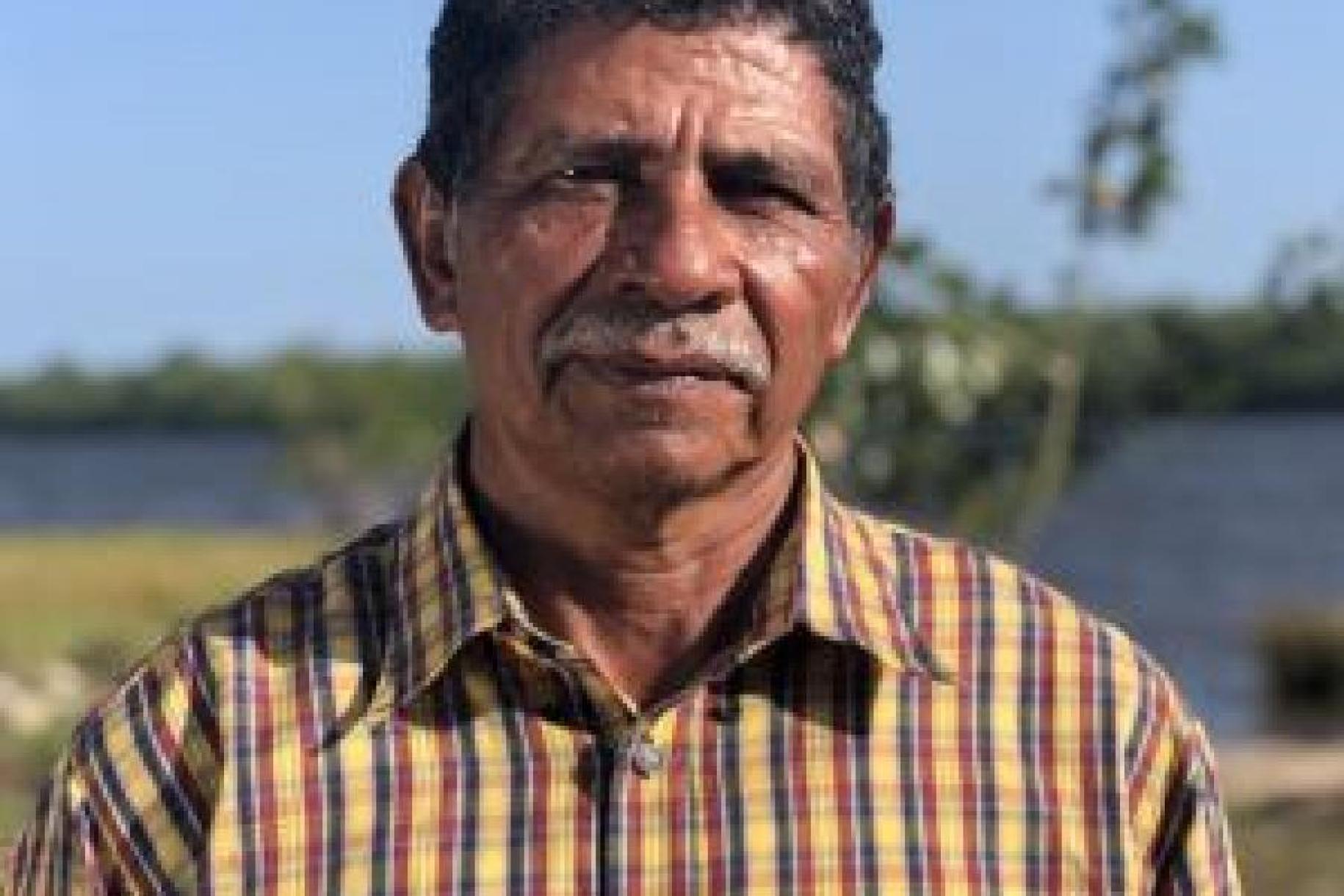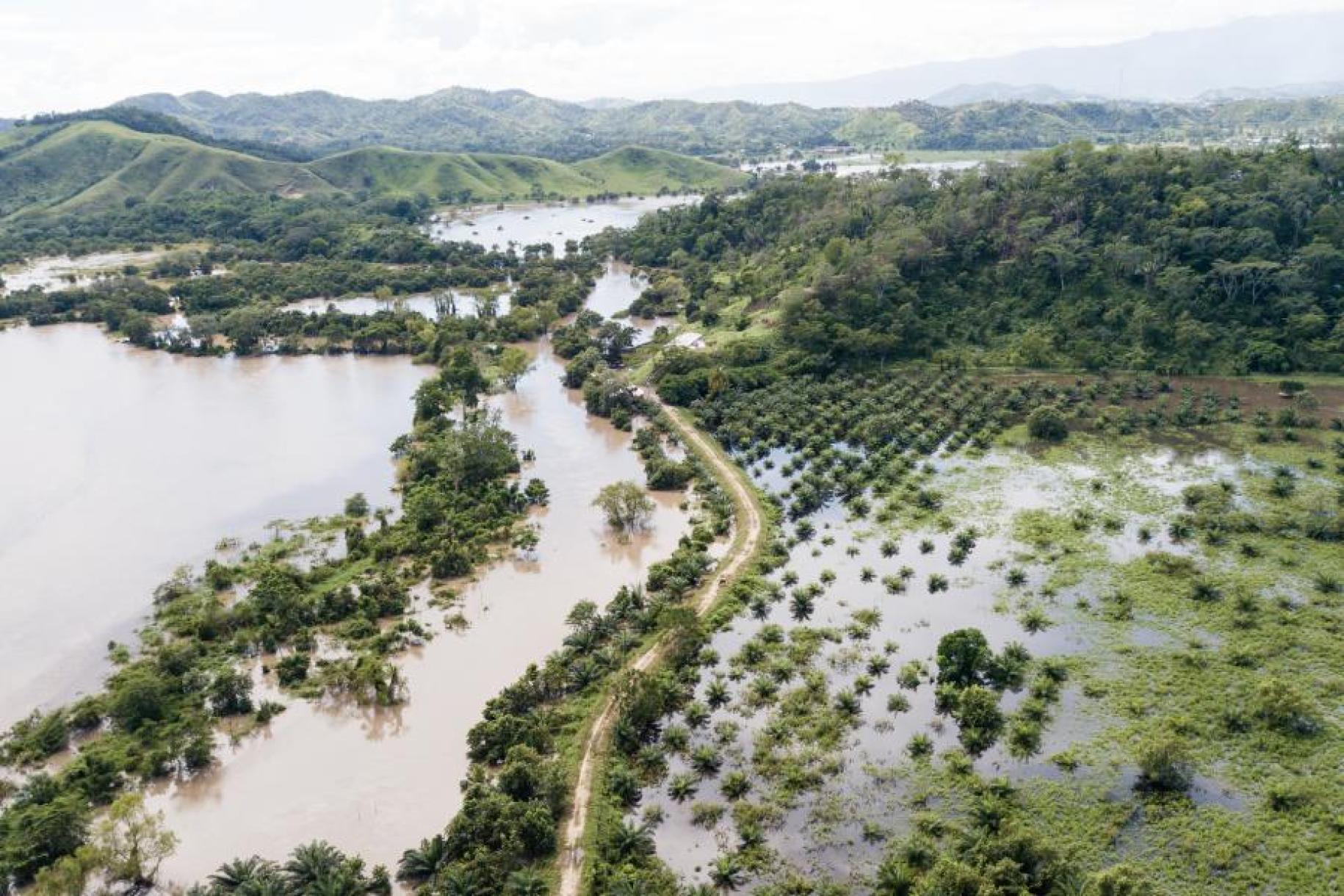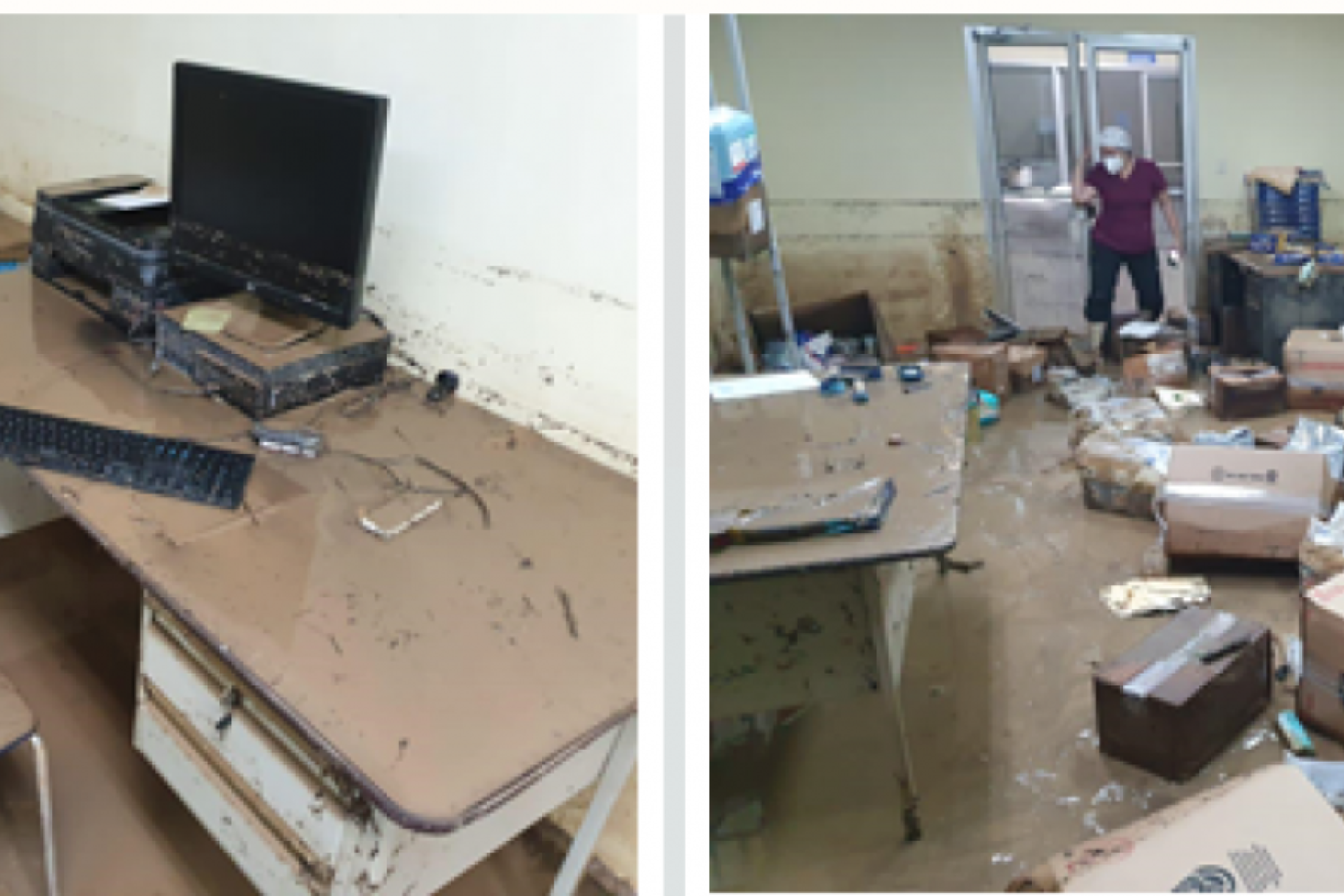Honduras: After the storms...

At the beginning of November 2020, Honduras was hit by tropical storms Eta and Iota, which left devastating consequences for a society already made especially vulnerable by the COVID-19 pandemic and recurrent droughts due to climate change.
Those affected — including local population, and also volunteers and response personnel — from the Honduras Humanitarian Network during the emergency, share their stories:
Mr. Electerio Colomer, President of the Kruta Fishing Company:
“Our community was completely flooded. We can only move from one place to another by small canoes or boats. There is no land where we can walk. The floods have destroyed the fishing, agricultural and livestock sectors. There is no solid ground on the banks of the river; everything is flooded".

More than 4 million Hondurans were affected by storms Eta and Iota. According to data from the country's authorities, more than 1,000 shelters have been set up nationwide for 95,000 people, many of which lost their homes. More than 85,000 houses were damaged and 6,000 were completely destroyed. Rufino, a 14-year-old boy in Puerto Cortés and member of the UNICEF field team says:
“We were gathering our things around 9:00 or 10:00 am in the morning, when our neighbours alerted us that the water was coming. We couldn't get everything out and our house was flooded”.
Preliminary results of field assessments carried out by the Humanitarian Network and the United Nations Disaster Assessment and Coordination Team (UNDAC) after storms Eta and Iota in the departments of Cortés, Yoro, Santa Bárbara, Copán, Colón and Olancho, show that the main needs of the affected population are care in temporary accommodation, water, sanitation and hygiene, health, protection and housing. These are some of the departments that were severely affected, adding to them the departments of Atlántida and Gracias a Dios, the latter a land of natural wealth that is home to the Miskita indigenous population, which suffered serious consequences with the passage of storm Iota. Dilia Mena, a Muskita mother and agricultural producer to the Equipo de Ayuda en Acción (Aid in Action Team, in English) that is providing humanitarian aid in the area shared:
“The hurricane destroyed my house: It broke the two main bases and my five children and I had to spend the night at my sister’s. If I didn't have her, I wouldn't have had anywhere to go and I'm afraid to go back because it's dangerous. Also, we lost our crops of musaceae, cassava and corn. Now we must start over, rebuild".
The Ministry of Agriculture and Livestock (Crop Farming and Livestock Service) [SAG, Servicio Agrícola y Ganadero, in Spanish] continues to evaluate losses in the sector, including difficult to find data on monetary losses since these are reflected in various items. A pre-assessment of losses has been submitted, which included: 48 square km of banana were affected; and 56 square km of apples 1,046 square km of African palm apples and 245 square km of sugarcane were also lost; in the same way, around 48 square km of citrus fruits were affected and 13,000 metric tons remain unharvested.

Tropical storms Eta and Iota has not only put the food and nutritional security of the affected population at risk, but has also increased health risks, especially while the country and the world continue to fight COVID-19. The effects on the health infrastructure include 10 hospitals and 44 first-level care facilities that show damage or losses, 27 collapsed health facilities, 120 disabled and 99 health facilities report that their staff has been affected or forced to evacuate nationwide.

The humanitarian country team — coordinated by the United Nations alongside the Government of Honduras, through the governing Secretariat office of the Honduran Permanent Commission for Contingencies (Copeco, in Spanish) — is providing humanitarian assistance nationwide thoughout seven sectors of primary care, with support from more than 40 national and international organizations.
The solidarity of the people truly shined in the aftermath of these storms: many civil society groups came together to collect supplies and to oversee the delivery of humanitarian aid for those affected. Within the Humanitarian Network, various land, air and sea vehicles were also used to rescue people and transfer humanitarian aid. Many organizations have continued to deliver food, lifesaving essentials and hygiene kits to the different shelters. Theses shelters are equipped to provide psychosocial care services, including the prevention and response to gender-based violence.
“We are providing general consultation services, minor surgeries and psychosocial support. We want to provide support to the population of La Lima, because they need medical attention, since they have run out of sanitary facilities and medicines,” said Juan José Ayestas, from the Honduran Red Cross, who is assisting affected communities of La Lima Cortés at the emergency mobile hospital.
On 19 November, the humanitarian country team launched an emergency appeal (Flash Appeal) to address the needs of 450,000 people severely affected by Tropical Storm Eta. The plan requires US$ 69.2 million to complement the Government’s response to this national emergency, which provides comprehensive assistance in areas related to food and nutritional security, health, water, sanitation and hygiene, shelters, protection and education.
Help is urgent
The humanitarian country team has a structured plan to provide the response but requires all the requested funds in the emergency appeal to fully implement it.
There are many harrowing stories of affected Hondurans that demonstrate this urgent need. There are also stories of volunteers and staff members in the field who are on the front-line of primary care and embody the commitment of the Humanitarian Network, the United Nations and society itself. These front-line people are contributing tremendously to the response and reconstruction processes that Honduras is undergoing.
In their own words
In an interview with two children who are in a shelter in Choloma, the UNICEF Honduras team witnessed the moment when the children openly share how they lost their home. One boy says as he holds back tears:
“My home, the things I had there... we lost them all. When it was raining, [his brother] Anthony was already crying because he missed mom... he cried out for our mom.” added his brother. "I miss my family”.
“It has been an honour to accompany the children at the shelters since they have never gone through this situation before and they have had to become familiar to it. They are innocent and do not fully grasp what the situation in the country really is. They only want to have fun and see things from their own perspective”, shared Karla, volunteer at the COMVIDA Municipal Children and Youth Programme, which is supported by UNICEF.
You can find out the details of the humanitarian response of this Humanitarian Network through the Situation Reports and download the flash appeal here.
Produced by UN Honduras. Written by María Elena Cálix, Communications and Advocacy Officer, UN Honduras. Originally published article in Spanish was posted to the UN Honduras website on 8 December 2020. To learn more about the work in the country, visit: https://honduras.un.org/.





































